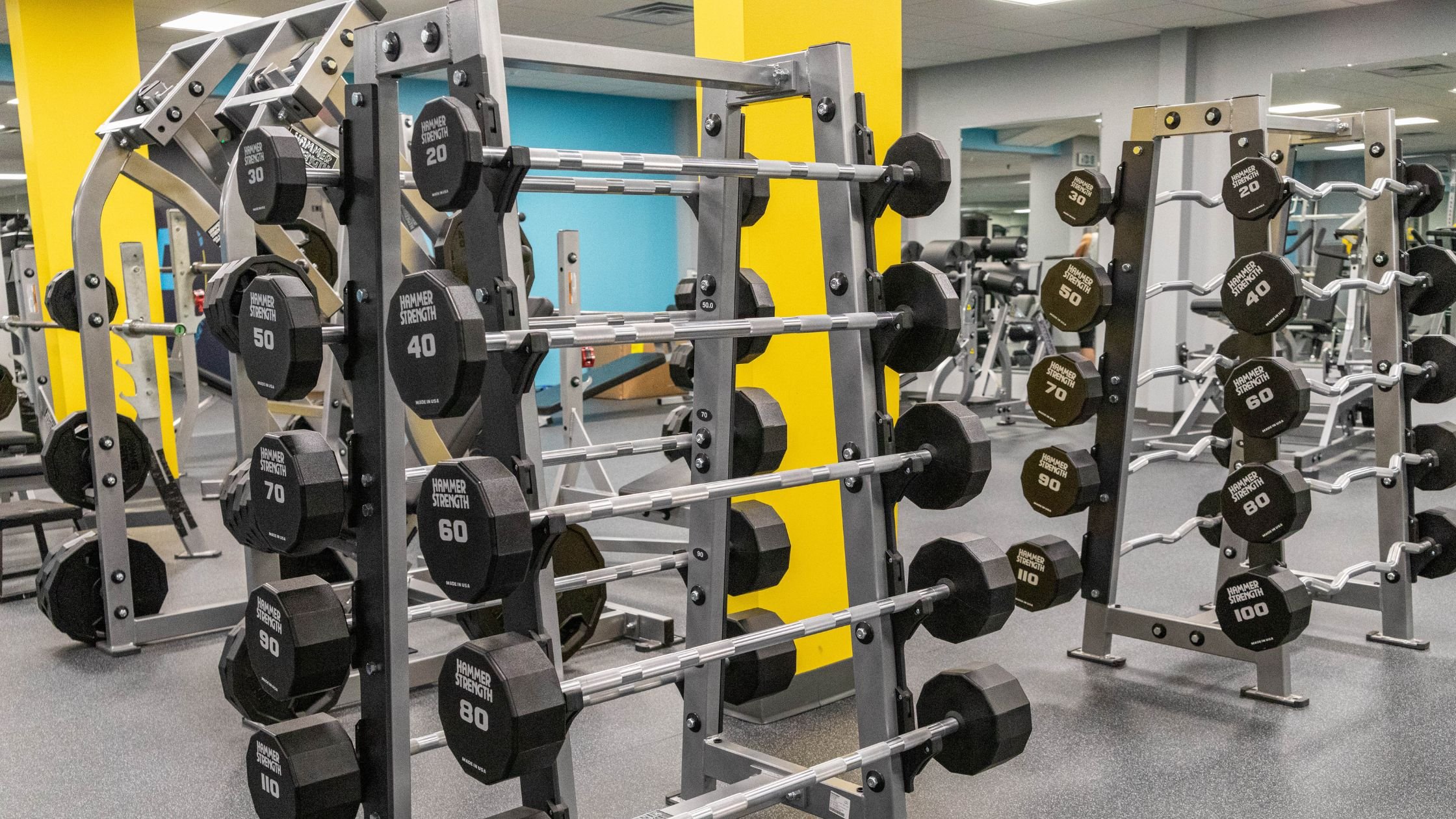Should you be lifting more?
Should you be lifting more?
Are you ready to raise the bar on your training? Discover the smart way to push your limits, grow muscles, and reap all the rewards of becoming stronger, fitter and more powerful.
Strong muscles, improved bone health, mental wellness and all sorts of reduced health risks … You don’t need to lift super heavy weights to enjoy the benefits of strength training.
But you do need constant challenges. As with any type of exercise, it’s the challenge that creates change, so it’s important to consistently seek opportunities to up the ante and push yourself beyond your comfort zone.
When it comes to lifting weights, that feeling of being completely worn out is typically a good thing. Exercise-induced fatigue (peripheral fatigue) is what breaks down muscle tissue. And while broken down muscle sounds bad, it’s actually beneficial.
This muscle breakdown stimulates the repair process which happens during post-exercise recovery. During recovery our muscle tissue is repaired to a state that is better than it was before – making the muscles even stronger.
The key to ongoing strength gains comes down to something called progressive overload. Progressive overload is the ongoing adaptation that occurs when you escalate the stress placed on your muscles.
Lifting incrementally heavier loads is one of the most powerful ways to benefit from progressive overload – and in some cases sparks hypertrophic muscle growth.
Progressive overload can also be achieved without adding more weight to your workout. Muscular adaption also stems from increasing time under tension.
When building strength using nothing but body weight, you can generate progressive overload by choosing more creative variations of bodyweight strength-building exercises.
How often should you increase your weights?
There is no specific formula for when to increase weights, the best approach is to reflect regularly on how you feel as you lift, and think honestly about whether you could manage more. “If you’re walking away from your strength workout feeling like you could have given it more, chances are you should have,” says Bryce Hastings, Les Mills Head of Research.
Hastings advises that if you’re doing a structured strength program like BODYPUMP™, choose one or two tracks where you feel you can lift heavier and make a small weight increase – maybe 1 or 2.5kgs (2.2 or 5.5 pounds) to each side of your barbell.
Small increases will help ensure you maintain good form while building strength. Depending on how often you’re lifting weights, adding small weight increases every 3-4 weeks is a good approach.
Checklist: Are you ready to raise the bar?
The challenge is gone
If you’re regularly working out and you can easily breeze through the motions, you need to look at your load. With strength training, the whole point is to overload your muscles so they get stronger. If it’s not a challenge, then it’s time to increase your weight.
You’re not getting hot and sweaty
It’s a common misconception that only cardio training raises your heart rate and burns calories, but a good strength session can also get you hot and sweaty.
If you get to the end of the BODYPUMP squat track and you don’t have sweat dripping from your elbows, chances are you’re not lifting enough.
You could keep going, and going, and going…
If you get to the end of the set and you feel like you could keep going then your resistance is likely too light.
Effective strength training relies on your muscles reaching fatigue – which feels like you couldn't possibly do another repetition without compromising your form.
You lift the same every workout
Continual progression is the key to getting the most out of any strength training. You need to lift more weight as you get stronger.
You’re not enjoying the same results as when you started
Your muscles need to be continually challenged to grow. If you keep training at the same workload, your muscles won't be challenged and your progress and results will stop then and there.
Will lifting heavy weights make you look too big and bulky?
Adding more weight to your workouts is not going to single-handedly turn you into the incredible hulk. Erin Maw, Les Mills Presenter and creator of the Strength Development program explains: “People have a misguided perception that strength training will make them look bulky. It won’t!
When people have extreme gains and look remarkably muscly, it’s because they combined a number of factors; nutrition, supplements and really specific and strategic training. Doing workouts like BODYPUMP or LES MILLS Strength Development won’t get you big and bulky, they will make you strong and powerful!”
During a 55-minute BODYPUMP workout you can perform well over 1,000 repetitions, which is around four times as many reps as a person typically achieves when training alone.
Research shows this high repetition training generates a lactate response, a subsequent increase in growth hormone, and a long term calorie burn effect that helps you build strength without bulk.
Will lifting more weight leave you feeling sore?
When you up your game and add a little more load to your strength training, there's a good chance you'll be feeling it in the morning (or a few days down the track).
This delayed onset muscle soreness (commonly known as DOMS) is totally normal. If you do end up feeling sore, low-intensity cardio – like a walk – is a great way to assist your recovery.
Ready to focus on strength gains?
Visit Member Services to find a trainer or get our class schedule today!



